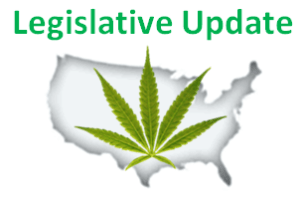In late February, the U.S. Food and Drug Administration sent stern letters to six companies peddling CBD products over what the agency said were unfounded medical claims.
The letters charged that the companies “misbranded” the products and warned that failure to correct the violations “may result in regulatory action without further notice, such as seizure and/or injunction.”
The move appears to mark the first time the FDA has cracked down on cannabis-related companies, raising concerns in the marijuana industry that this is the first shot across the bow.
Though cannabis professionals are used to federal intervention – such as raids from the Drug Enforcement Administration and lawsuits by U.S. district attorneys – the FDA has typically kept out of the cannabis fray.
Some insiders now wonder if the FDA’s recent action signals a larger policy shift at the federal level.
“Once you come out with this sort of acknowledgement, now you’re faced with, ‘What is the plan of the FDA to oversee this issue?’” said Avis Bulbulyan, a cannabis consultant based in California.
Bulbulyan noted that only CBD companies had received warning letters – not infused product manufacturers, some of which make similar claims about their products. He speculated that the FDA probably wanted to target smaller fish first and avoid a potentially much bigger battle with well-funded companies.
“If you take on one or two of the THC-infused product manufacturers, then you have a real fight on your hands,” Bulbulyan said. “I think (the FDA is) feeling their way around it.”
Zeta Ceti, of Green Rush Consulting in California, said this is likely a sign of things to come.
He advises infused products businesses and CBD companies to follow general FDA standards to avoid potential conflicts with the federal government down the road, and to prepare for the eventuality of oversight.
That way, “they at least have a fighting chance to prove they’re not breaking the law” if the FDA does initiate a crackdown.
“The FDA is going to step in eventually. It’s going to happen,” Ceti said.
Regardless, the issues brought up by the FDA will probably be fairly easy for most – if not all – of the six companies to resolve. The complaints mostly centered on online advertising regarding claims of medicinal benefits.
“We’ll absolutely modify our website to comply with the FDA,” said Moe Asnani, co-owner of CBD Life Holdings and the company’s web site, ultracbd.com, which was one of the targets of the FDA letters. “At this point, we’re just going to omit whatever information they want us to.”
Asnani is also a partner at Arizona Dispensary Solutions, which manages several dispensaries and also provides consulting services. He added that his attorney is crafting a formal response to the FDA warning, but that it won’t be a major problem to comply with the agency’s directives.
“We only had links to research articles, and we’re going to modify that,” Asnani said.
Sarah Brandon, a principal at Canna Companion, a Washington State-based company that also received a warning letter, said only in an email that her company is “working closely with the FDA…in order to take appropriate corrective action.”
Asnani and Brandon were the only principals at any of the six companies that agreed to comment on the story, and the FDA did not return a call seeking comment.
Another company that was served with a warning letter, South Carolina-based Twin Falls Bio Tech, now has a disclaimer on its site, arisitol.com, to clarify that its products are not FDA-approved. (It’s not clear whether the disclaimer predates the FDA warning or was recently added.)
Bulbulyan, for one, expects to see many more such notices from the FDA over the coming year.
“Now they’re in the fight,” Bulbulyan said.
John Schroyer can be reached at johns@mjbizmedia.com




